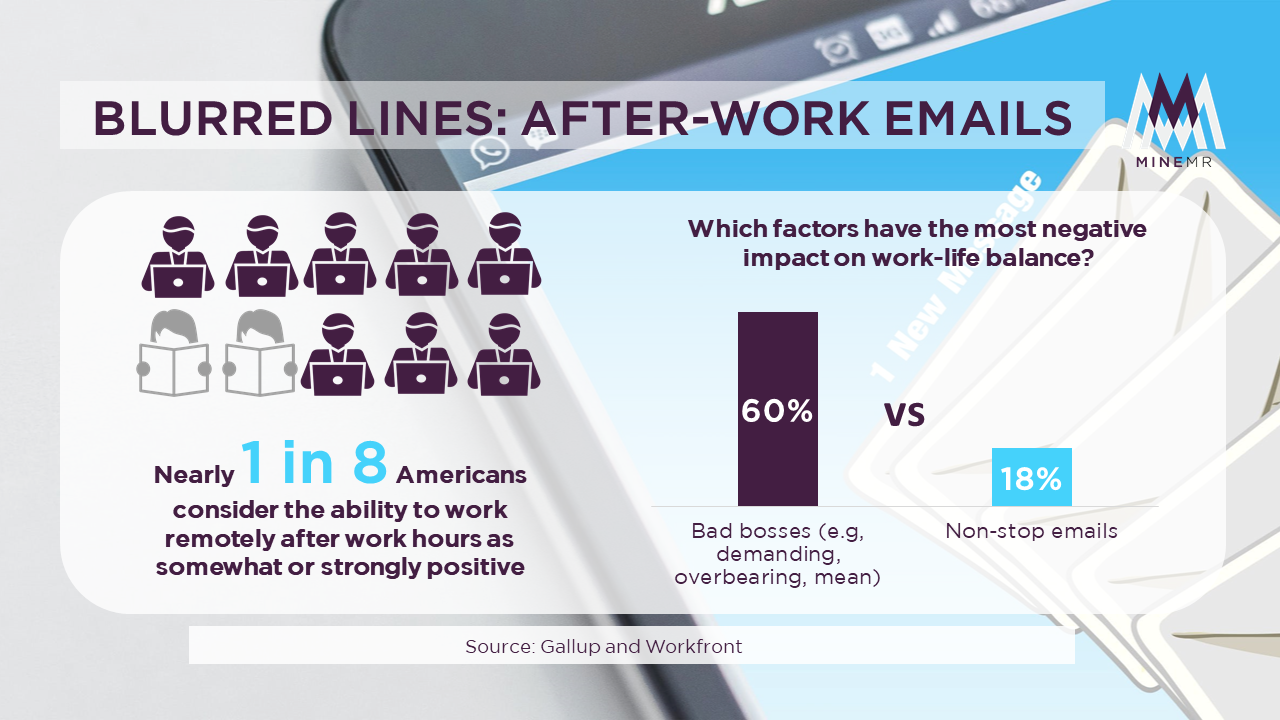Studies indicate that Americans have some of the longest work days in comparison to other first world countries. City Councilmember Rafael L. Espinal Jr wants to combat the overworked life of American office workers by banning employers from reprimanding employees for not checking their emails after work hours. Taking cues from France, Espinal Jr hopes this bill will allow New Yorkers to enjoy their leisure time instead of anxiously checking their phones. The bill has been met with some backlash. The age old question of how much should government intervene with private business matters certainly concerns many New Yorker business owner; however, many are questioning if the bill will help more than it will hurt.
In studies conducted by Gallup, most Americans like the ability to work remotely after business hours. Those who are in demanding, office jobs and those who work with international business rely on frequent contact with their partners. Moreover, it prevents workers from staying at their desks too long as they can continue to work from home at their convenience. For those who want to keep their personal time from their private time, they can opt to remain at work as needed.
The Gallup study goes on to illustrate that people who love their jobs do not mind the extra emails, but those who hate their jobs, do. For the vast majority who are in the middle, it does not seem to bother them too much to have emails going at all hours of the day.
Proponents of the bill argue that constant emailing is hurting the work-life balance many New Yorkers dream to achieve, but banning emails seems to be a band-aid solution to a work culture problem. Workfront polled 1,000 office workers and asked them to select top 3 factors that attribute to poor work-life balance. The top 3 were bad bosses, constantly working beyond business hours, and inflexible scheduling. Among the bottom three were: unproductive meetings, employer-issued electronic devices that require the employee to respond to all messages, and non-stop emails.
When asked how to improve work-life balance, 69% of respondents selected that employers should offer flexible work hours and only 27% selected impose restrictions on emails. The Workfront study reveals that work culture plays a larger role than imposing arbitrary rules over emails.
In an Atlantic article, journalists found that many Americans waste hours at work and often play catch-up at home. To them and the vast majority of survey respondents, electronic devices have paved the way for more flexibility in their work lives and thus improved their work-life balance.
Of course, this is highly dependent on office culture and your work place. Opponents of the banning after work email bill wonder how this will be regulated and if it will create a workplace of fear. If employers cannot trust their employees to finish work, will employers have to work extended hours? Or worse, employees worry that bringing up this workplace ban will cause retaliation by their bosses. The bill might ban employers from reprimanding their employees, but employers, of course, still have their leverage.
Overall, Americans might be overworked and stressed out, but more extensive research and studies need to be done before preventative action can be taken. Incentivizing businesses to create more flexible work places and pushing for more employee power seems to be the way to go.
It’s unclear how the New York bill will go, but on an ending note, do you agree with the ban?

